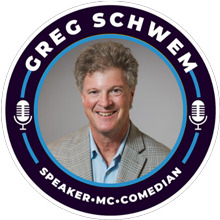Every other week I sit in front of a blank computer screen, faced with the stressful task of writing a humor column approximately 650 words in length. This week will be no different except for a few modifications:
The column will be EXACTLY 650 words.
If my editor wants changes, I will politely but firmly decline. Let him do it.
I will not even THINK about my next column until it is time to produce it two weeks from now.
I am “quiet quitting.”
For a more detailed explanation of this work phenomenon, search the phrase on TikTok. Because, you know, where else would you go for career advice? Scores of Gen Z workers, some of whose career histories can be measured in months, not years, have taken to the social media platform to explain to the rest of us dolts that quiet quitting is not when one quits a job, but chooses to put mental health before career goals. It is the opposite of “hustle culture,” the belief that one needs to work as hard as possible to achieve that promotion, that raise or that corner office with the amazing Manhattan skyline view.
Quiet quitters would rather knock off precisely at 5 p.m., and spend their evenings and weekends doing whatever it takes to better themselves, be that mountain biking, Pilates class, sleeping in late or anything else that makes them ready to seize the following work week at 9 a.m., and not a minute before.
They feel they should be praised for this mentality, despite rumblings among older co-workers that the correct term for quiet quitters is “slackers.”
What Does Denzel Say?
They are also undeterred by detractors such as Denzel Washington who, in a 2017 speech at the NAACP Image Awards, said, “Ease is a greater threat to progress than hardship.” Incidentally, I found the speech during the TikTok “quiet quitting” search.
“…keep moving, keep growing, keep learning. See you at work,” he concluded.
I’m currently at 330 words. More than halfway done. Take that Denzel!
Since the pandemic thrust an entire nation of workers and alleged workers into their homes, the definition of work has been turned upside down. Remote work led all of us to realize we were burned out. Actually, I’m not sure all of us realized that; it may have been one guy from Cleveland who realized it and posted his thoughts on TikTok, where it immediately went viral.
Suddenly companies were seriously discussing four-day work weeks, “Show Us Your Emotional Support Parakeet” Zoom meetings and unlimited vacation days.
The “Quitting” Part of Quiet Quitting
Fast-forward to present time, where those same companies are laying off workers in droves, perhaps keeping only those who don’t subscribe to quiet quitting.
Hey, I’m all for positive mental health and work/life balance. I’m also pretty experienced at working from home, having done so since 1989 when I quit my job to pursue stand-up comedy. I am writing this column on a Friday and, as soon as I have written precisely 650 words and hit “send,” I am pondering whether to visit the gym or mow my lawn. I will return in the afternoon to write some jokes and check email.
However, if one of those emails necessitates me submitting a proposal to a client or creating a video on the fly, I will cancel my Friday evening plans and do it. Does that make me a victim of hustle culture? Or am I just someone who feels income, which supports my family, takes precedence over my wine tasting group?
My advice to quiet quitters is to also embrace a “quiet resume update” and a “quiet job search,” as I feel you will soon need both. Unless you can live off the fortunes you made in the cryptocurrency…wait, never mind.
That’s it. That’s my advice. I’d offer more, but I’m almost at my 650-word limit.
I think this column is really really, really good.




The F-Bomb Has Gone Mainstream — And Nobody Cares Anymore